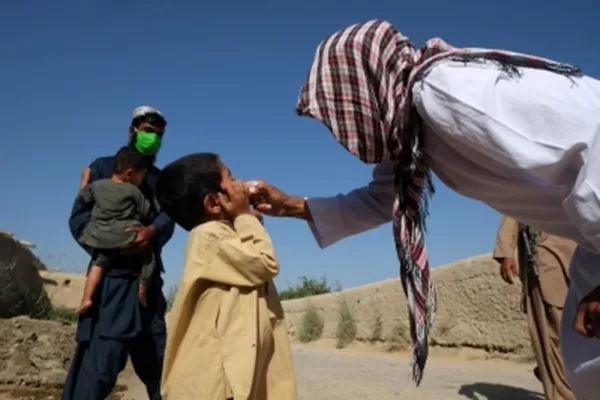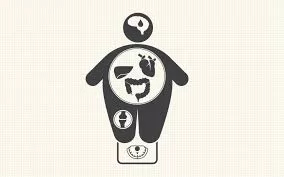Health expert explains the history, success, and future of the polio vaccine amid controversy
The polio vaccine, hailed as one of the greatest public health triumphs of the 20th century, is at the center of a new debate. A petition filed by Aaron Siri, a lawyer advising Robert F. Kennedy Jr., is calling for the withdrawal of FDA approval for the vaccine. This move is drawing attention, particularly as Siri also plays a key advisory role in the transition of President-elect Donald Trump’s nominee to head the Department of Health and Human Services, a figure with a history of vaccine skepticism.
Despite the ongoing controversy, the polio vaccine’s success in eradicating the disease worldwide remains undeniable. Northeastern University public health expert Dr. Neil Maniar discussed with Northeastern Global News the significance of the vaccine, the types of vaccines used, and the challenges that remain in the fight to fully eradicate polio.
The Devastating Impact of Polio
Poliomyelitis, or polio, is a viral infection that primarily affects children under the age of 5. It targets the nervous system, causing paralysis, and in severe cases, death. The disease is highly contagious, spreading through contact with infected fecal matter or respiratory droplets. The World Health Organization (WHO) estimates that one in every 200 polio infections results in irreversible paralysis, with 5% to 10% of those paralyzed dying due to respiratory failure.
Dr. Maniar, director of Northeastern University’s Master of Public Health program, recalls that in the early 20th century, polio was a devastating global epidemic, particularly in the United States. “Before the vaccine was developed in the 1950s, polio was a major public health threat,” he explained. “It was prevalent in most parts of the world, including the U.S.”
A Vaccine That Changed History
The first successful polio vaccine was developed by Dr. Jonas Salk in the 1950s. Salk famously tested the inactivated virus on himself and his family before releasing it to the public. The results were dramatic: polio rates in the U.S. plummeted, and the vaccine became a key tool in the global fight against the disease.
“Once the vaccine was introduced, we saw a dramatic drop in cases,” Maniar said. “There hasn’t been a reported case of wild polio in the U.S. for over 20 years.” The WHO reports that since 1988, the global incidence of wild poliovirus has decreased by 99%, with only two countries—Afghanistan and Pakistan—still reporting cases of the naturally occurring virus.
The success of the vaccine is considered one of the greatest public health achievements, marking a major victory in the fight against infectious diseases.
Two Vaccines for Two Different Needs
There are two main types of polio vaccines: the inactivated polio vaccine (IPV) and the oral polio vaccine (OPV). The IPV, developed by Salk, uses an inactivated virus and is administered through injections. This vaccine has been used exclusively in the U.S. since 2000, with children receiving four doses between the ages of 2 months and 6 years.
The OPV, developed by Dr. Albert Sabin, uses a weakened live virus and is given orally. This version is still widely used in developing countries, where logistical challenges such as limited healthcare infrastructure make the oral vaccine easier to distribute.
While the OPV has been instrumental in controlling polio in low-resource settings, it has caused rare outbreaks in some developing nations, where the live virus has mutated and infected unvaccinated children. Nonetheless, the OPV remains crucial in the fight against polio in many regions.
The Path to Global Eradication
Despite the tremendous progress, the WHO warns that polio has not been completely eradicated. The persistence of polio in Afghanistan and Pakistan is a major concern, as the disease can spread to other regions if not fully controlled. “As long as one child remains infected, all children are at risk of contracting polio,” the WHO states.
Dr. Maniar voiced concern that recent movements to undermine vaccination programs, including the potential withdrawal of the polio vaccine’s FDA approval, could jeopardize the progress made. “If the FDA pulls the polio vaccine or places restrictions on it, vaccination rates could fall,” he warned. “A reduction in health education campaigns and the weakening of public confidence in vaccines could lead to outbreaks of diseases that were once under control.”
In a globalized world where diseases can spread quickly across borders, the potential for a resurgence of polio is a pressing concern. “The last thing we want is to see diseases like polio making a comeback after all the progress we’ve made,” Maniar concluded.
As the petition against the polio vaccine gains attention, it raises important questions about the balance between public health and individual choice. For now, however, the polio vaccine remains one of the greatest successes in global health, with millions of lives saved and the world closer than ever to eradicating the disease completely.











